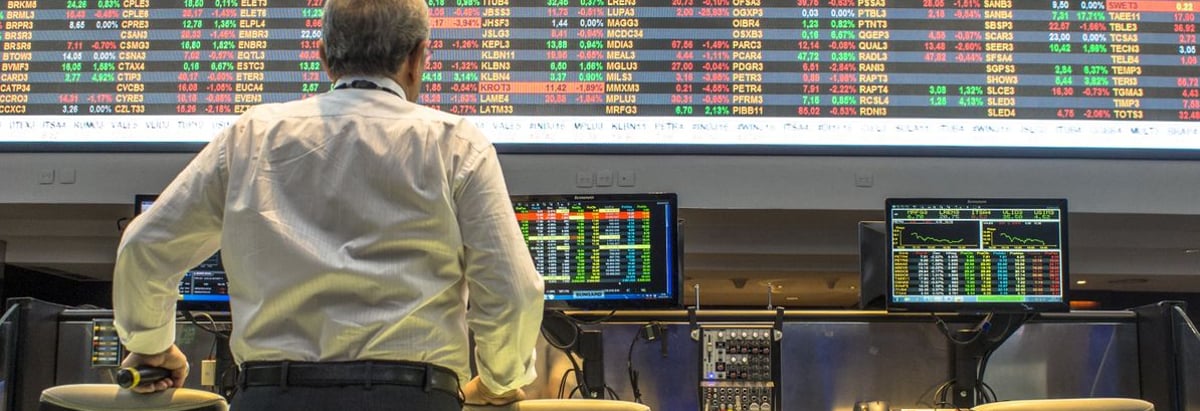Stock Analysis
- South Korea
- /
- Capital Markets
- /
- KOSDAQ:A294570
Retail investors in COOCON Corporation (KOSDAQ:294570) are its biggest bettors, and their bets paid off as stock gained 28% last week

Key Insights
- Significant control over COOCON by retail investors implies that the general public has more power to influence management and governance-related decisions
- The top 25 shareholders own 42% of the company
- Insider ownership in COOCON is 12%
If you want to know who really controls COOCON Corporation (KOSDAQ:294570), then you'll have to look at the makeup of its share registry. With 58% stake, retail investors possess the maximum shares in the company. Put another way, the group faces the maximum upside potential (or downside risk).
As a result, retail investors collectively scored the highest last week as the company hit ₩158b market cap following a 28% gain in the stock.
Let's take a closer look to see what the different types of shareholders can tell us about COOCON.
See our latest analysis for COOCON
What Does The Lack Of Institutional Ownership Tell Us About COOCON?
Small companies that are not very actively traded often lack institutional investors, but it's less common to see large companies without them.
There could be various reasons why no institutions own shares in a company. Typically, small, newly listed companies don't attract much attention from fund managers, because it would not be possible for large fund managers to build a meaningful position in the company. On the other hand, it's always possible that professional investors are avoiding a company because they don't think it's the best place for their money. COOCON's earnings and revenue track record (below) may not be compelling to institutional investors -- or they simply might not have looked at the business closely.
COOCON is not owned by hedge funds. Webcash Vector Corporation is currently the company's largest shareholder with 25% of shares outstanding. Meanwhile, the second and third largest shareholders, hold 4.1% and 3.8%, of the shares outstanding, respectively.
Our studies suggest that the top 25 shareholders collectively control less than half of the company's shares, meaning that the company's shares are widely disseminated and there is no dominant shareholder.
While studying institutional ownership for a company can add value to your research, it is also a good practice to research analyst recommendations to get a deeper understand of a stock's expected performance. While there is some analyst coverage, the company is probably not widely covered. So it could gain more attention, down the track.
Insider Ownership Of COOCON
The definition of company insiders can be subjective and does vary between jurisdictions. Our data reflects individual insiders, capturing board members at the very least. Management ultimately answers to the board. However, it is not uncommon for managers to be executive board members, especially if they are a founder or the CEO.
Insider ownership is positive when it signals leadership are thinking like the true owners of the company. However, high insider ownership can also give immense power to a small group within the company. This can be negative in some circumstances.
Our information suggests that insiders maintain a significant holding in COOCON Corporation. Insiders own ₩18b worth of shares in the ₩158b company. We would say this shows alignment with shareholders, but it is worth noting that the company is still quite small; some insiders may have founded the business. You can click here to see if those insiders have been buying or selling.
General Public Ownership
The general public -- including retail investors -- own 58% of COOCON. This level of ownership gives investors from the wider public some power to sway key policy decisions such as board composition, executive compensation, and the dividend payout ratio.
Private Company Ownership
Our data indicates that Private Companies hold 30%, of the company's shares. It's hard to draw any conclusions from this fact alone, so its worth looking into who owns those private companies. Sometimes insiders or other related parties have an interest in shares in a public company through a separate private company.
Next Steps:
It's always worth thinking about the different groups who own shares in a company. But to understand COOCON better, we need to consider many other factors. To that end, you should be aware of the 2 warning signs we've spotted with COOCON .
If you are like me, you may want to think about whether this company will grow or shrink. Luckily, you can check this free report showing analyst forecasts for its future.
NB: Figures in this article are calculated using data from the last twelve months, which refer to the 12-month period ending on the last date of the month the financial statement is dated. This may not be consistent with full year annual report figures.
New: AI Stock Screener & Alerts
Our new AI Stock Screener scans the market every day to uncover opportunities.
• Dividend Powerhouses (3%+ Yield)
• Undervalued Small Caps with Insider Buying
• High growth Tech and AI Companies
Or build your own from over 50 metrics.
Have feedback on this article? Concerned about the content? Get in touch with us directly. Alternatively, email editorial-team (at) simplywallst.com.
This article by Simply Wall St is general in nature. We provide commentary based on historical data and analyst forecasts only using an unbiased methodology and our articles are not intended to be financial advice. It does not constitute a recommendation to buy or sell any stock, and does not take account of your objectives, or your financial situation. We aim to bring you long-term focused analysis driven by fundamental data. Note that our analysis may not factor in the latest price-sensitive company announcements or qualitative material. Simply Wall St has no position in any stocks mentioned.
About KOSDAQ:A294570
COOCON
Operates as a business data provider in Korea.

